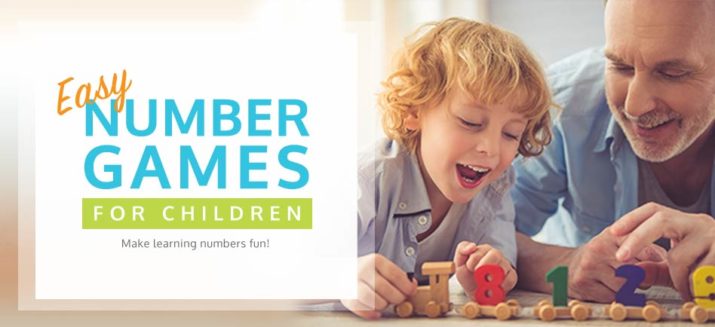
Learning to count to ten is an important skill for any child, and forms the foundation for basic math, telling time, reading calendar dates, and much more. Playing fun learning numbers games helps teach children this important skill—even if they don’t realize they’re being taught.
Counting to Ten Games
Even the greatest mathematicians began by learning to count to ten, and they may well have learned with the same games you use to teach your own children. Counting songs like “One, Two, Buckle My Shoe” and “One Potato, Two Potato: are easy to learn and can be made even more fun by pantomiming the actions of each verse.
The “growing numbers” game is often used by preschool and kindergarten teachers. The child starts off scrunched up as small as possible, and with every number stretches out a little more so by the time they reach ten they’re on their tiptoes with their hands stretched out over their heads.
Counting Down
It’s an odd fact, but there are more songs about counting down from ten than counting to ten. “Ten little monkeys,” “Ten bottles of pop on the wall,” and “There Were Ten in the Bed” are all popular learning numbers songs for counting down.
Counting Things
Counting things can be turned into a fun scavenger hunt. Ask kids to find four toys, or color in five cars in a coloring book. Played outside, kids can run to and touch the things they’re counting. During reading time, read numbers books and have children count what’s on the page.
Random Numbers
After counting, the next step is having children be able to identify numbers by themselves. Flash cards can be useful here, or you can play “I-spy” with numbers, asking children to identify numbers on signs or in books.
Reading Numbers
Many of learning numbers games can be adapted to teach children to identify written numbers. You can find dice that use written numbers instead of pips, and use them to play board games (counting spaces on board games is, of course, a great way to demonstrate counting and how to use numbers).
Most of all, make learning numbers fun. Learning by rote doesn’t work well with a toddler’s limited attention span. Use plenty of songs and silly counting games. You can ask children to help count in the grocery store or the kitchen (“Can you bring Daddy four carrots?”), count out money, count animals at the zoo—really, the opportunities are endless. Before you know it, your child will well on her way to a career in theoretical mathematics—or at least well-prepared for elementary school.



